Listed here are former members of my group. It is my honest opinion that this is a very impressive list. In fact, I know more colleagues that think highly of my students and postdocs than colleagues that think highly of me. I very often meet colleagues that tell me: “Were you the advisor of X? X is amazing.” As it is the goal of most any mentor, I want my students and postdocs to eventually surpass them. I have been, however, caught off-guard by how soon this eventually has come to pass.
They are listed in reverse order of appearance. I love them all the same.
Former Students
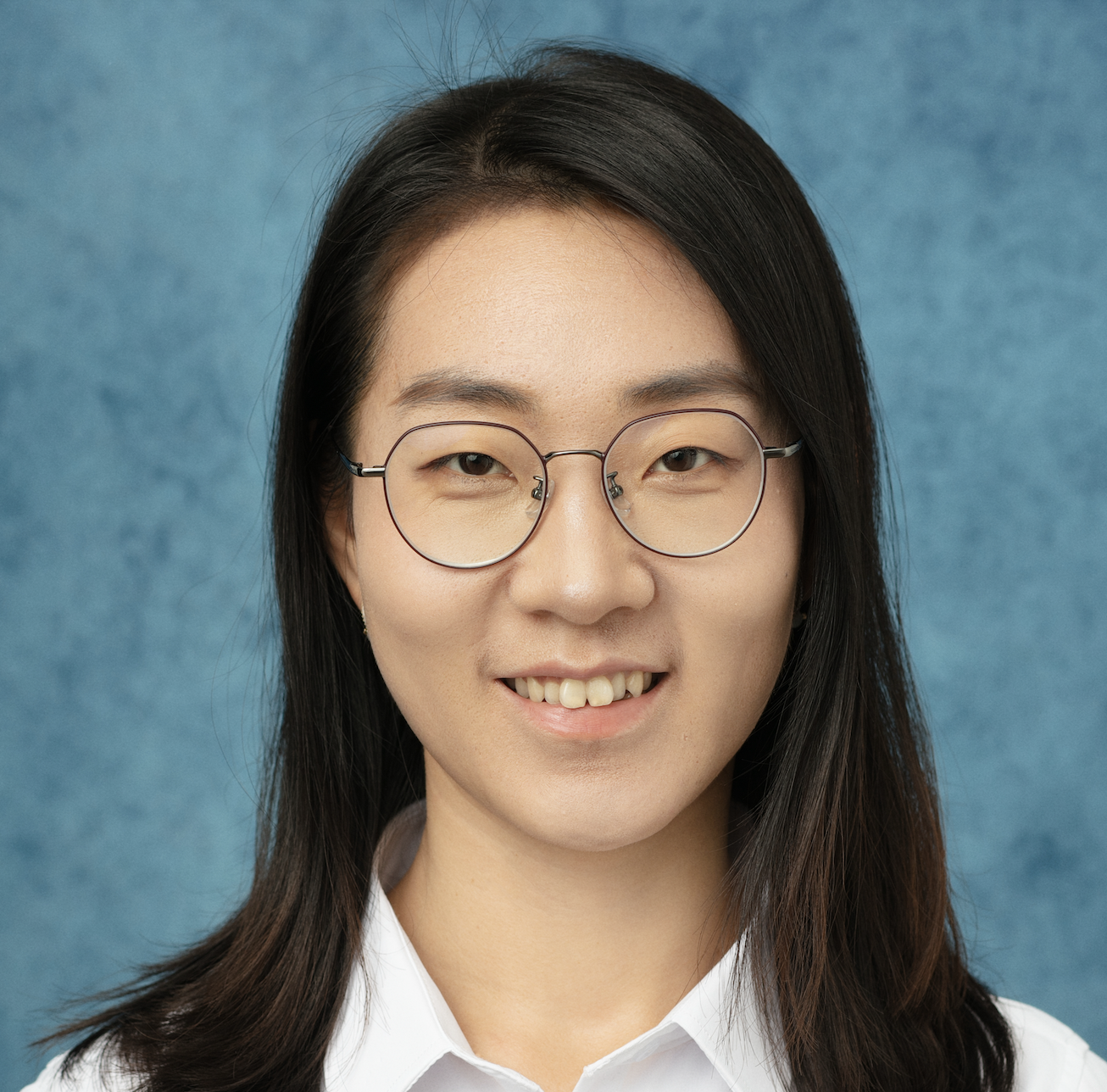
Zhiyang Wang defended her PhD dissertation in Electrical and Systems Engineering in April of 2025. The title of her dissertation is “Manifold Filters and Neural Networks: Geometric Graph Signal Processing in the Limit,” and her favorite dissertation paper is “Stability to Deformations of Manifold Filters and Manifold Neural Networks.”
Zhiyang will be a postdoc scholar in Halιcιoğlu Data Science Institute at the University of California, San Diego. She will join the Department of Electrical and Systems Engineering of Washington University in St. Louis in August 2026 as an assistant professor. She specializes in signal processing and machine learning with a focus on graph signal processing, graph neural networks, geometric deep learning, and complex network systems. She has been recognized as a 2024 Rising Star in Data Science, a 2023 Rising Star in Signal Processing, and a 2023 EECS Rising Star. She received the best student paper award at the 29th European Association for Signal Processing Conference and was awarded the Bruce Ford Memorial Fellowship at the University of Pennsylvania.

Juan Cervino left Penn with his PhD in Electrical and Systems Engineering in August of 2024. The title of his dissertation is “Graph Machine Learning Under Requirements.” His favorite dissertation papers are “Learning by transference: Training graph neural networks on growing graphs” and “Learning globally smooth functions on manifolds“.
Juan is currently a Postdoctoral Fellow in the Laboratory for Information and Decision Systems (LIDS). Before Penn, Juan received his B.Sc. degree in Electrical Engineering from Universidad de la Republica, Montevideo, Uruguay in 2018.
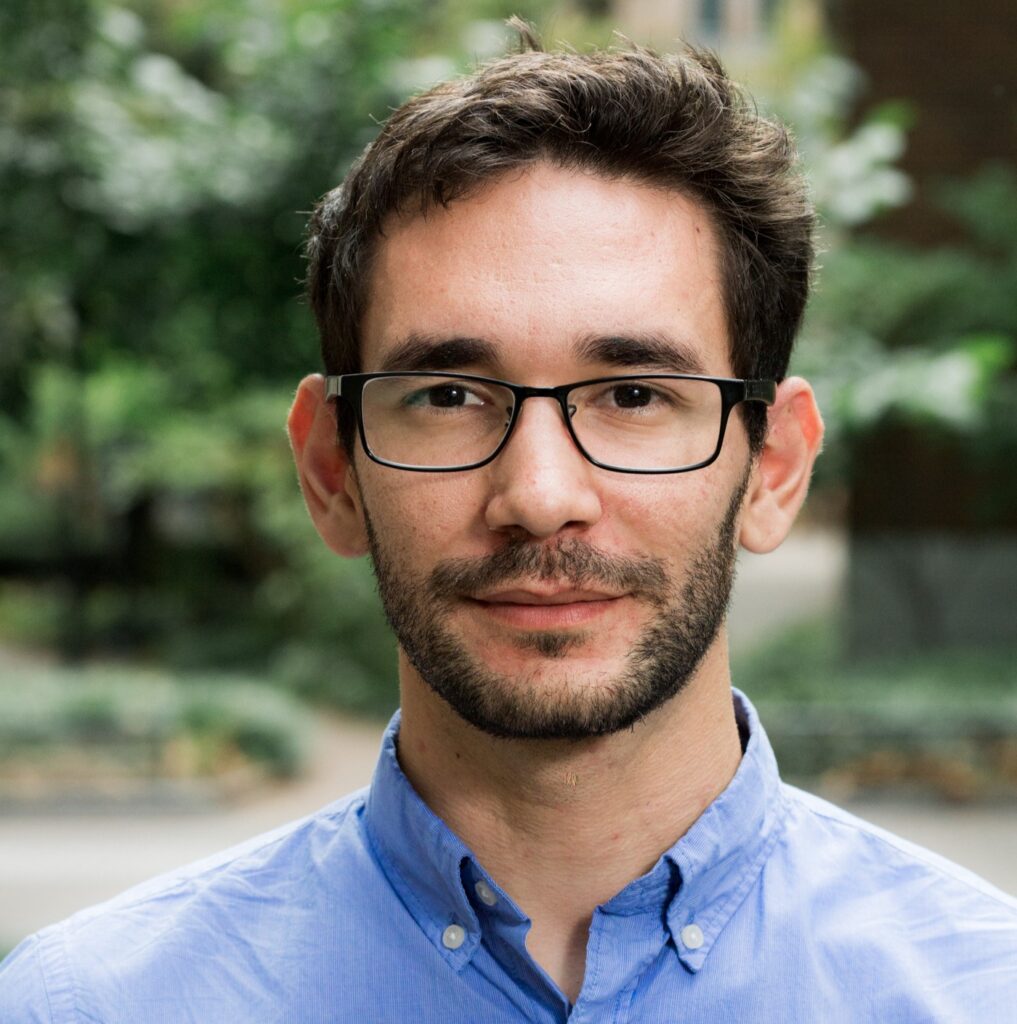
Vinícius Lima is research scientist in the AI Applications Department at IBM Research, Yorktown Heights, NY, working at the intersection of machine learning, optimization, control theory, and artificial intelligence. He obtained his PhD in Electrical and Systems Engineering from the University of Pennsylvania, where he was very fortunate to be advised by Prof. Alejandro Ribeiro. Before that, he obtained his M.Sc. and B.S. in Electrical Engineering from the State University of Campinas, Brazil. His current work focuses on scalable, data-driven model predictive control algorithms with time-series forecasting models and decision-making systems for real-world industrial applications.

Luana Ruiz is an Assistant Professor with the Department of Applied Mathematics and Statistics and the MINDS and DSAI Institutes at Johns Hopkins University. She received the Ph.D. degree in electrical engineering from the University of Pennsylvania in 2022, and the M.Eng. and B.Eng. double degree in electrical engineering from the École Supérieure d’Electricité, France, and the University of São Paulo, Brazil, in 2017. Luana’s work focuses on large-scale graph information processing and graph neural network architectures. She was awarded an Eiffel Excellence scholarship from the French Ministry for Europe and Foreign Affairs between 2013 and 2015; nominated an iREDEFINE fellow in 2019, a MIT EECS Rising Star in 2021, a Simons Research Fellow in 2022, and a METEOR fellow in 2023; and received best student paper awards at the 27th and 29th European Signal Processing Conferences.
Her favorite paper is “Graphon Signal Processing.”

Luiz F. O. Chamon is an assistant professor (tenure-track) and Hi! PARIS chair holder in the center for applied mathematics (CMAP) of École polytechnique (X), France. He received the B.Sc. and M.Sc. degrees in electrical engineering from the University of São Paulo, Brazil, in 2011 and 2015 and the Ph.D. degree in electrical and systems engineering from the University of Pennsylvania (Penn), USA, in 2020. Until 2022, he was a postdoctoral fellow at the Simons Institute of the University of California, Berkeley, and until 2024, he was an independent research group leader at the University of Stuttgart, Germany. In 2009, he was an undergraduate exchange student of the Masters in Acoustics of the École Centrale de Lyon, France, and worked as an Assistant Instructor and Consultant on nondestructive testing at INSACAST Formation Continue. From 2010 to 2014, he worked as a Signal Processing and Statistics Consultant on a research project with EMBRAER.
He received both the best student paper and the best paper awards at IEEE ICASSP 2020 and was recognized by the IEEE Signal Processing Society for his distinguished work for the editorial board of the IEEE Transactions on Signal Processing in 2018. In 2022, he received the Young Investigators award from the Division of Engineering and Applied Sciences, Caltech. In 2025, he became an ELLIS Scholar.
His research interests include optimization, signal processing, machine learning, statistics, and control.

Fernando Gama is currently a Machine Learning Scientist at Pendulum Systems. Before, he worked as a Machine Learning Researcher at Morgan Stanley. His expertise lies in time series forecasting, graph neural networks, collaborative intelligence, and AI on edge devices. As a member of AleLab, Fernando worked on machine learning and signal processing for graph-structured data. He devised novel graph neural network (GNNs) architectures, developed theoretical insights that help explain and understand their strengths and limitations, and pioneered their use across diverse applications, including power grids, sensor networks, multi-agent robotics, and distributed control. His work earned him two IEEE SPS Best Paper Awards (2022, 2024), a place in the top 25 downloaded articles in 2020 for IEEE Transactions on Signal Processing, a Cambridge Ring Publication of the Year Award in 2021, and the best student paper award in EUSIPCO 2019.

Mark Eisen received the master’s degree in statistics and the PhD degree in electrical engineering from the University of Pennsylvania, in 2019. He is currently working as a staff scientist at the Johns Hopkins University Applied Physics Laboratory and was previously a research scientist with Intel Labs in Hillsboro, OR. His research interests include networked control systems, statistical optimization, reinforcement learning and wireless communications. In 2022, He received the Best Paper Award at the IEEE International Conference on Factory Communication Systems. His favorite dissertation paper is “Optimal Wireless Resource Allocation with Random Edge Graph Neural Networks.”
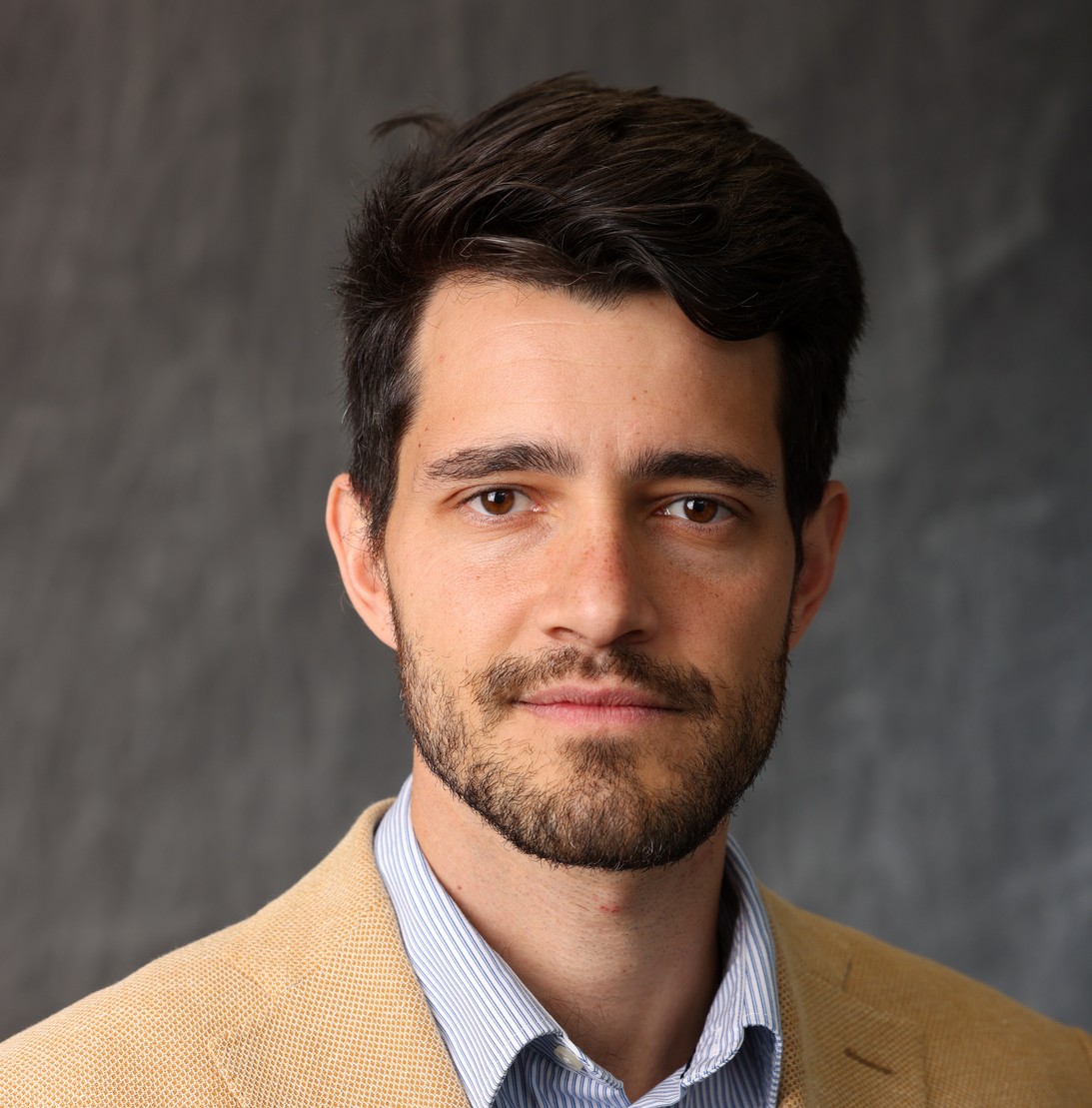
Santiago Paternain received his PhD in Electrical and Systems Engineering in August of 2018 and left Penn a year later. The title of his dissertation is “Stochastic Control Foundations of Autonomous Behavior.” His best known dissertation paper is “Constrained Reinforcement Learning Has Zero Duality Gap” and his favorite dissertation paper is “Navigation Functions for Convex Potentials in a Space with Convex Obstacles.”
Santiago is currently an Assistant Professor in the Department of Electrical Computer and Systems Engineering at the Rensselaer Polytechnic Institute. His research interests lie at the intersection of machine learning and control of dynamical systems. Santiago is the recipient of the 2017 CDC Best Student Paper Award and the 2019 Joseph and Rosaline Wolfe Best Doctoral Dissertation Award from the Electrical and Systems Engineering Department at the University of Pennsylvania.

Weiyu Huang (find Weiyu Huang in LinkedIn) received his PhD degree in Electrical and Systems Engineering from Penn in April of 2018. The title of his dissertation is “Network Data Analytics: Network Comparison and Applied Graph Signal Processing.” His favorite paper is “A graph signal processing perspective on functional brain imaging.”
Weiyu is currently a Software Engineer at Meta where he works on optimizing advertisement ranking and delivery for the Facebook App. Before Meta he worked for Apple, IQVIA, and the Australian Communication and Media Authority. Weiyu is the recipient of the 2022 IEEE Brain Initiative Student Paper Award. He received his B.Sc. degree in Electrical Engineering from The Australian National University, Canberra, Australia, in 2013.

Alec Koppel is a Research Lead at JP Morgan AI Research in the Multi-agent Learning and Simulation Group. From 2021-2022, he was Research Scientist at Amazon within Supply Chain Optimization Technologies (SCOT). From 2017-2021, he was a Research Scientist with the U.S. Army Research Laboratory in the Computational and Information Sciences Directorate (CISD) from 2017-2021. He completed his Master’s degree in Statistics and Doctorate in Electrical and Systems Engineering, both at the University of Pennsylvania (Penn) in August of 2017.
Before coming to Penn, he completed his Master’s degree in Systems Science and Mathematics and Bachelor’s Degree in Mathematics, both at Washington University in St. Louis (WashU), Missouri. He is a recipient of the 2016 UPenn ESE Dept. Award for Exceptional Service, an awardee of the Science, Mathematics, and Research for Transformation (SMART) Scholarship, a co-author of Best Paper Finalist both the 2017 and 2024 Asilomar Conference on Signals, Systems, and Computers, a finalist for the ARL Honorable Scientist Award 2019, an awardee of the 2020 ARL Director’s Research Award Translational Research Challenge (DIRA-TRC), a 2020 Honorable Mention from the IEEE Robotics and Automation Letters, and mentor to the 2021 ARL Summer Symposium Best Project Awardee. His academic work focuses on approximate Bayesian inference, reinforcement learning, and decentralized optimization. He has worked on applications spanning robotics and autonomy; vendor selection and sourcing; and financial markets of various types. His favorite papers are “Parsimonious Online Learning with Kernels via Sparse Projections in Function Space” and “Consistent online Gaussian process regression without the sample complexity bottleneck.”

Aryan Mokhtari left Penn with his PhD in Electrical and Systems Engineering in July of 2017. The title of his dissertation is “Efficient Methods for Large-Scale Empirical Risk Minimization.” His favorite dissertation paper is “IQN: An Incremental Quasi-Newton Method with Local Superlinear Convergence Rate.”
Aryan is currently Assistant Professor of Electrical and Computer Engineering (ECE) at the University of Texas at Austin (UT Austin) where he is the Fellow of Texas Instruments/Kilby Professor. Before joining UT Austin, he was a Postdoctoral Associate in the Laboratory for Information and Decision Systems (LIDS) at MIT and a Research Fellow at the Simons Institute. He has received the NSF CAREER Award, the Google Research Scholar Award, the Army Research Office (ARO) Early Career Program Award, the Simons-Berkeley Research Fellowship, UT Austin ECE Junior Faculty Excellence in Teaching Award, and Penn’s Joseph and Rosaline Wolf Award for Best Doctoral Dissertation. He received his B.Sc. degree in Electrical Engineering from Sharif University of Technology, Tehran, Iran, in 2011.
Aryan is husband of Solmaz and proud father of Leon, Penn Class of 2047.
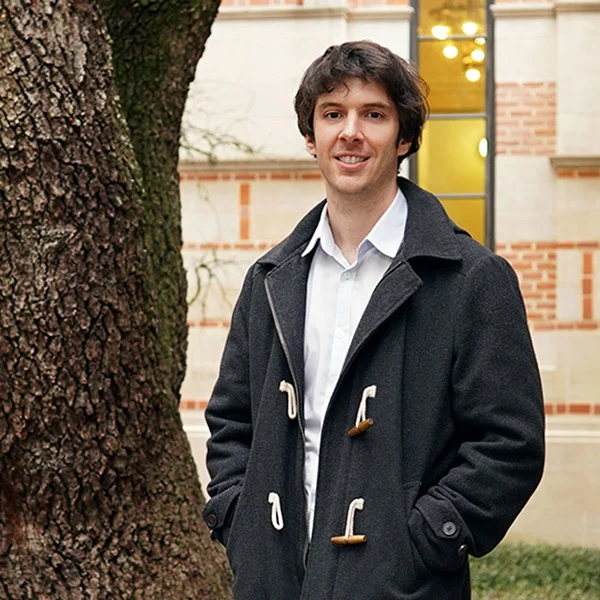
Santiago Segarra left Penn with his PhD in Electrical and Systems Engineering in August of 2016. The title of his dissertation is “Metric Representations of Networks.” His favorite dissertation paper is “Network topology inference from spectral templates.”
Santiago is currently a W. M. Rice Trustee Associate Professor in the Department of Electrical and Computer Engineering at Rice University. He was a postdoctoral research associate with the Institute for Data, Systems, and Society at the Massachusetts Institute of Technology between the Fall 2016 and the Summer of 2018. He has received the 2011 Outstanding Graduate Award granted by the National Academy of Engineering of Argentina, the 2017 Penn’s Joseph and Rosaline Wolf Award for Best Doctoral Dissertation in Electrical and Systems Engineering, the 2020 IEEE Signal Processing Society Young Author Best Paper Award, the 2021 Rice’s School of Engineering Research and Teaching Excellence Award, and early career awards from the NSF, the Army Research Office and Army Research Institute. He received his B.Sc. degree in Industrial Engineering with highest honors (Valedictorian) from the Instituto Tecnológico de Buenos Aires (ITBA), Argentina, in 2011.
Santiago is husband of Belen and proud father of Martina, Penn Class of 2046.

Ceyhun Eksin left Penn with his PhD in Electrical and Systems Engineering in January of 2015. The title of his dissertation is “Bayesian Network Games.” His favorite dissertation paper is “Bayesian Quadratic Network Game Filters.”
Ceyhun is currently associate professor and the Corrie and Jim Furber ’64 faculty fellow in the Industrial and Systems Engineering Department in Texas A&M University. He was a Postdoctoral Fellow at the Georgia Institute of Technology affiliated with the School of Electrical & Computer Engineering and the School of Biological Sciences between 2015 and 2017. He was a visiting researcher at the Max Planck Institute for Dynamics and Self-organization in 2018. Ceyhun is a 2023 Texas A&M Institute of Data Science (TAMIDS) Career Initiation Fellow and a recipient of a 2023 NSF CAREER award. He received his B.Sc. degree in Control Engineering from Istanbul Technical University in 2005 and his M.Sc. degree in Industrial Engineering from Boğaziçi University in 2008, both in Istanbul, Turkey.
Ceyhun is husband of Defne and proud father of Lidia (Penn class of 2041) and Leyla (Penn class of 2044).
Former Postdocs

Dongsheng Ding received his PhD in Electrical Engineering from the University of Southern California in 2022. The title of his dissertation is “Provable Reinforcement Learning for Constrained and Multi-Agent Control Systems.” His two best-known dissertation papers are “Natural Policy Gradient Primal-Dual Method for Constrained Markov Decision Processes” and “Independent Policy Gradient for Large-Scale Markov Potential Games: Sharper Rates, Function Approximation, and Game-Agnostic Convergence.” His favorite postdoctoral research paper is “Last-Iterate Convergent Policy Gradient Primal-Dual Methods for Constrained MDPs.”
Dongsheng Ding is currently a Postdoctoral Researcher in the Department of Electrical and Systems Engineering at the University of Pennsylvania, and an incoming Assistant Professor in the Department of Electrical Engineering and Computer Science at the University of Tennessee, beginning in Fall 2025. His research focuses on application of principles and tools in optimization and control to the study of requirement-driven machine decision-making. He develops principled methodologies that enable reinforcement learning and generative modeling to operate under specific requirements, such as safety and fairness. He was twice named an MHI PhD Scholar Finalist (2018, 2021) at the University of Southern California. He received the ECE Department Fellowship from the University of Minnesota.

Alejandro Parada-Mayorga is an Assistant professor in the Electrical Engineering Department at the University of Colorado in Denver. Before this position, Alejandro worked as a research scientist and postdoctoral researcher in the Department of Electrical and Systems Engineering at the University of Pennsylvania (Penn). At Penn, his research focused on the mathematical foundations of information processing and learning. He led the efforts to use algebraic signal processing techniques to understand machine learning architectures. He received his Ph.D degree in Electrical Engineering from the University of Delaware (UD), where his research focused on graph signal processing and compressed sensing. At UD he was awarded the Dissertation Fellowship Award [June 2018] and the Signal Processing and Communications Graduate Faculty Award [May 2018]. Before his Ph.D studies, he obtained his master’s (with scholarship) and BSc. degrees in Electrical Engineering from the Industrial University of Santander (UIS) in Colombia, where his research focused on digital image processing, manifold signal processing, and computational electromagnetics. At UIS, he also worked as a lecturer in the courses signal processing and digital image processing. His work has been published in several venues of IEEE, such as IEEE Transactions of Signal Processing, IEEE Transactions on Signal and Information Processing over Networks, IEEE Transactions on Computational Imaging, IEEE Signal Processing Magazine, and the ICASSP/EUSIPCO conferences. His recent research interests include algebraic signal processing, applied representation theory of algebras, geometric deep learning, applied category theory, graph neural networks, and topological signal processing.
His favorite papers produced at Penn are: “Algebraic Neural Networks: Stability to Deformations,” “Sampling and Uniqueness Sets in Graphon Signal Processing,” “Convolutional Filtering with RKHS Algebras,” and “Lie Group Algebra Convolutional Filters.”

Charilaos I. Kanatsoulis is a research associate in the Department of Computer Science at Stanford University. Previously, he was a postdoctoral researcher in the Department of Electrical and Systems Engineering at the University of Pennsylvania (Penn). He received his Ph.D. in Electrical and Computer Engineering from the University of Minnesota, Twin Cities, in 2020. His research lies at the intersection of machine learning and signal processing, with a particular focus on Transformer and neural network design for relational data and single-cell biology, graph representation learning, tensor analysis, and explainable AI. He has made notable contributions to the analysis and design of graph neural networks, and to advancing methods for solving inverse problems with multi-dimensional data, particularly in hyperspectral and medical imaging.
At Stanford, he co-instructs CS246 and CS224W, and previously served as primary instructor for ESE 5140 at Penn. He has co-organized the Graph Signal Processing short course at IEEE ICASSP 2023, the Stanford Graph Learning Workshop in 2024, the Relational Deep Learning tutorial at ACM KDD 2025, and the New Perspectives in Advancing Graph Machine Learning workshop at NeurIPS 2025. His work has received a Best Paper Award at CAMSAP 2023 and a Spotlight Paper distinction at the ACM KDD TGL Workshop 2025. His favorite papers produced at Penn are: “Graph neural networks are more powerful than we think” and “Counting graph substructures with graph neural networks“.
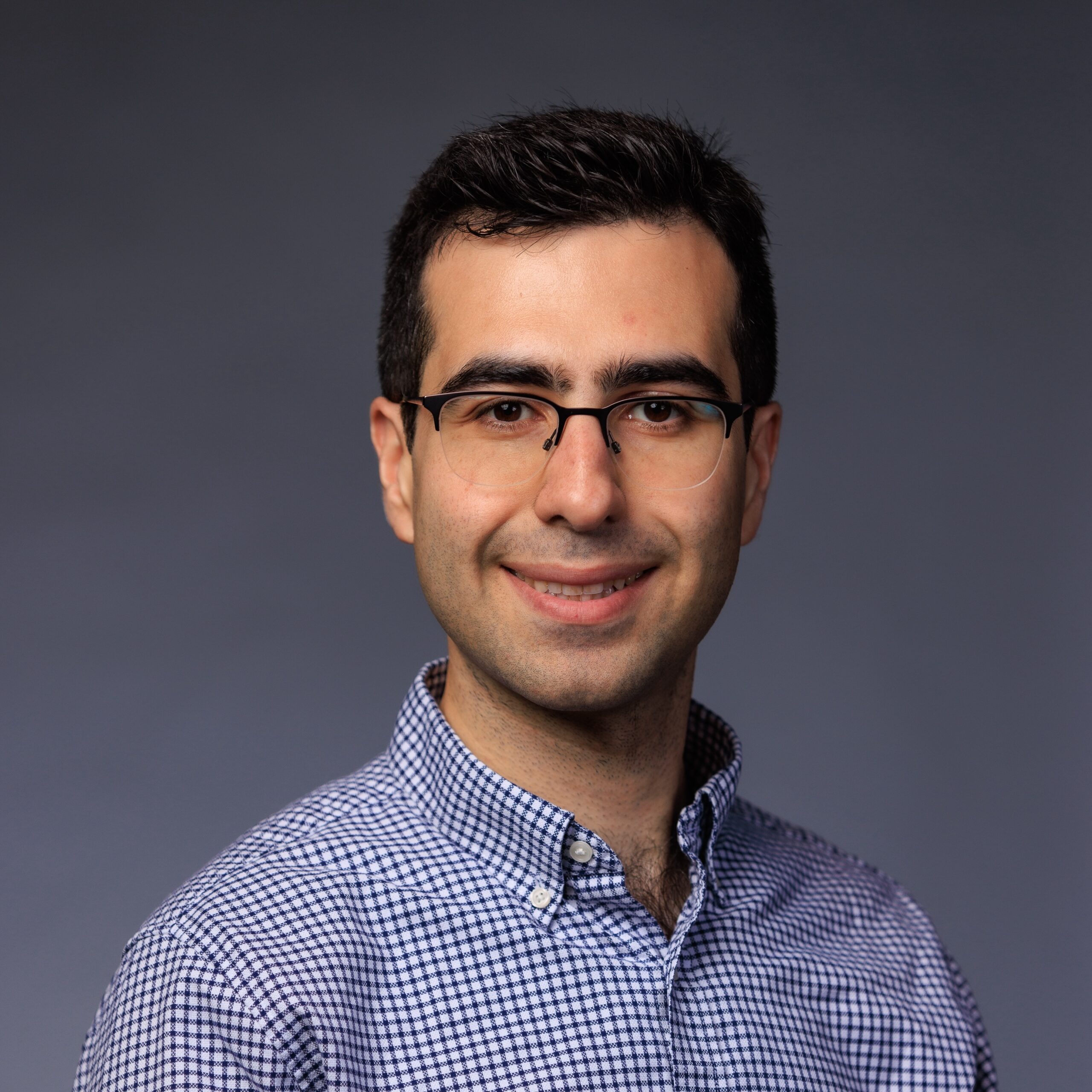
Navid NaderiAlizadeh received the B.S. degree in electrical engineering from Sharif University of Technology in 2011, the M.S. degree in electrical and computer engineering from Cornell University, and the Ph.D. degree in electrical engineering from the University of Southern California. Upon graduating with his Ph.D., he spent four years as a Research Scientist at Intel Labs and HRL Laboratories. He is now an Assistant Research Professor in the Department of Biostatistics and Bioinformatics at Duke University. Prior to that, he was a Postdoctoral Researcher at the University of Pennsylvania. Navid’s current research interests span the foundations of machine learning, artificial intelligence, and signal processing, and their applications in developing novel methods for analyzing biological and clinical data. Navid was a 2011 Irwin and Joan Jacobs Scholar, a 2015-16 Ming Hsieh Institute Ph.D. Scholar, and a Shannon Centennial Student Competition finalist at Nokia Bell Labs in 2016. He has served as an Associate Editor for the IEEE JSAC and as a Guest Editor for the IEEE IoT Magazine. He was a co-organizer of the MLSys 2023 Workshop on Resource-Constrained Learning in Wireless Networks and the ICML 2024 Workshop on Accessible and Efficient Foundation Models for Biological Discovery.

Dionysis Kalogerias is an assistant professor of Electrical and Computer Engineering (ECE) at Yale University, and director of the RADIO Lab. He received the PhD degree in ECE from Rutgers, The State University of New Jersey (2017), the MSc degree in Signal Processing and Communications Greece (2012), and the Meng degree in Computer Engineering and Informatics (2010), both from the University of Patras, Greece. Before joining Yale, Dionysios was an assistant professor with the Department of ECE, Michigan State University (2020 – 2021). Prior to that, he held postdoctoral appointments with the Department of Electrical and Systems Engineering, University of Pennsylvania (2019 – 2020), and the Department of Operations Research and Financial Engineering, Princeton University (2017 – 2019). Dionysis’ research is in the areas of mathematical optimization, quantitative risk, statistical learning, decision under uncertainty and signal processing, and their applications in resource allocation and management, autonomy, robustness, fairness and trustworthiness. He has received several awards, including the Best Paper Award at ICASSP 2020, and the Best Student Paper of the Special Sessions Award at ICASSP 2016.
Outside academic duties, Dionysis is actively interested in algorithmic/systematic trading, as well as the management of financial risk (quant research). His favorite papers are “Better Safe than Sorry: Risk-Aware Nonlinear Bayesian Estimation” and “Strong Duality in Risk-Constrained Nonconvex Functional Programming.”

Miguel Calvo-Fullana received the B.Sc. degree in electrical engineering from the Universitat de les Illes Balears (UIB) in 2010 and the M.Sc. and Ph.D. degrees in electrical engineering from the Universitat Politècnica de Catalunya (UPC) in 2013 and 2017, respectively. He joined Universitat Pompeu Fabra (UPF) in 2023, where he is a Ramón y Cajal fellow. Prior to joining UPF, he held postdoctoral appointments at the University of Pennsylvania and the Massachusetts Institute of Technology, and during his Ph.D., he was a research assistant at the Centre Tecnològic de Telecomunicacions de Catalunya (CTTC). His research interests lie in the broad areas of learning and optimization for autonomous systems, with a particular emphasis on multi-agent systems, wireless communication and networks connectivity. He is the recipient of best paper awards at ICC 2015, GlobalSIP 2015, and ICASSP 2020.
His favorite papers are “Constrained reinforcement learning has zero duality gap” and “State augmented constrained reinforcement learning: Overcoming the limitations of learning with rewards.”
